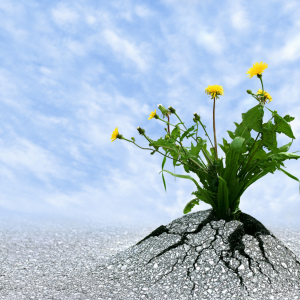As with many of my blog topics…this one hits close to home. The idea that there are people in this world that struggle to want to be in the present moment, not because of their obligations and responsibilities (although we often guise them as such), rather because the present is the most threatening place of all for us to be.
Think about that? It means we will miss “being” with the people we love, because even when we have the time to do it we don’t have the emotional tolerance for it. And, of course, we are drawn to one another as partners, because the equal intolerance of the present allows us the illusion of being with someone, while in actuality we are participating in parallel role play in many ways. But that is a blog for another day.

I here some of you saying, “What in the hell are you talking about, Doc?”, while others are wondering, “How does she know that about me?”. Let me start from the beginning then, instead of only talking about what the result is once we are in our adulthood.
I think the single most cutting pain an adult who survived adverse childhood experiences will suffer, is that of missing the life they were given in exchange for surviving the life they were ‘told’ to live. Because essentially that is what it boils down to. In their adverse childhood experiences they were ‘told’ what their role was through abuse or neglect of various kinds. They adapted. They were ingenious at being exactly who they needed to be in order to survive the adverse experience. Yet the chief adaptation to not being able to actually leave your abuse or neglect, is for your brain to ‘tell’ you that you have left, by teaching you how to never live in the present. Unfortunately there comes a time when your life becomes stable and you would like to be able to live in the moment. Yet by now, you have honed the skill of feeling threatened by the present and leaving it as soon as you feel you are there.
I think the single most cutting pain an adult who survived adverse childhood experiences will suffer, is that of missing the life they were given in exchange for surviving the life they were ‘told’ to live.
Natalie M. Marr, Psy.D., LP
And there is the rub. If your brain saves you from the damage of living in the present moment during your adverse experiences as a child, then it also will take you away from being in the present later in your life. Not that this can’t be addressed with therapy and healed to some extent…the problem is that many people don’t discover that they are doing this.

Listen, I am a psychologist, and I am still recognizing this tendency in myself. As the adult child of alcoholic parents, there was turmoil in my household. More so towards the end of my parents marriage while my younger two siblings and I still lived in the home and our older siblings were out of the house. I cannot speak for my siblings, but after years of therapy and self-healing work, I can see some clear correlations between how I operate in my adult life and this learned behavior from my childhood of wanting to be anywhere but here. One of the ways I escaped was through acquiring knowledge. Thus I ended up the Valedictorian of my high school class, Magna Cum Laude in college, and had a stellar GPA in graduate school (which I’d honestly have to look at my transcript to remember). I didn’t want to be ’in’ my life, so instead I started to accumulate knowledge with a determination to better understand how life works.
Lucky for you, I have this knowledge and the desire to do my own work, so that I can teach others this stuff in a more tangible way. Not lucky for me, I still struggle to this day with overworking and choosing to be in my head about things work/knowledge related rather than enjoy time with my family and friends. One of the tells around this issue in fact, is the way that I feel almost nervous, like I am forgetting something, when I am just trying to hang out with my kids. I hate this. It was a sad revelation to me when I finally made the connection. Everything in my adult wise mind tells me that I want to be with my kids, want to enjoy those small moments, and want them to enjoy those moments too. Yet, the Limbic system in my brain is screaming at me to leave, threatened to its core that staying here in the moment will result in emotional pain.

So, to go back to where we began, there are a lot of us in this world that feel the same way. We know we should want to be in the moment and relish the things. We just can’t seem to make ourselves settle down long enough to really enjoy it. And of course we are all at varying levels of awareness with this as well. Some of us don’t realize it at all, while others are aware and have told themselves the narrative that this is just because they are so busy and have so many obligations. Have you ever questioned why that is? Why you make a point out of finding new responsibilities whenever there is opportunity, almost like you are compelled to do it? Well you are compelled…by your Limbic system. By your childhood survival adaptation of being more preoccupied with what you wanted to do next, to ever stay in the present moment.
It was a sad revelation to me when I finally made the connection. Everything in my adult wise mind tells me that I want to be with my kids, want to enjoy those small moments, and want them to enjoy those moments too. Yet, the Limbic system in my brain is screaming at me to leave, threatened to its core that staying here in the moment will result in emotional pain.
Natalie M. Marr, Psy. D., LP
If any of this sounds familiar to you, I cannot encourage you enough to talk to a counselor or therapist about it. And you may even be a little picky about the kind of counselor or therapist. Ask if they are trained in developmental psychology, attachment theory, the effects of adverse childhood experiences on adult life, Mindfulness based practices, or even just in trauma. These skill sets in mental health professionals are all geared towards helping you uncover the whys behind these tendencies and to help bring it into your self-awareness. Self-awareness becomes a super power of sorts. Just knowing you have the tendency to do this allows space for you to start to train yourself to tolerate being in the present more.
Stay patient with yourself though. This work is slow many times. Remember, if you have spent a lifetime with a brain who believes that being in the present moment is as scary as laying in the tiger’s mouth…well, it’ll be a hot minute before you teach your brain that the present isn’t dangerous.